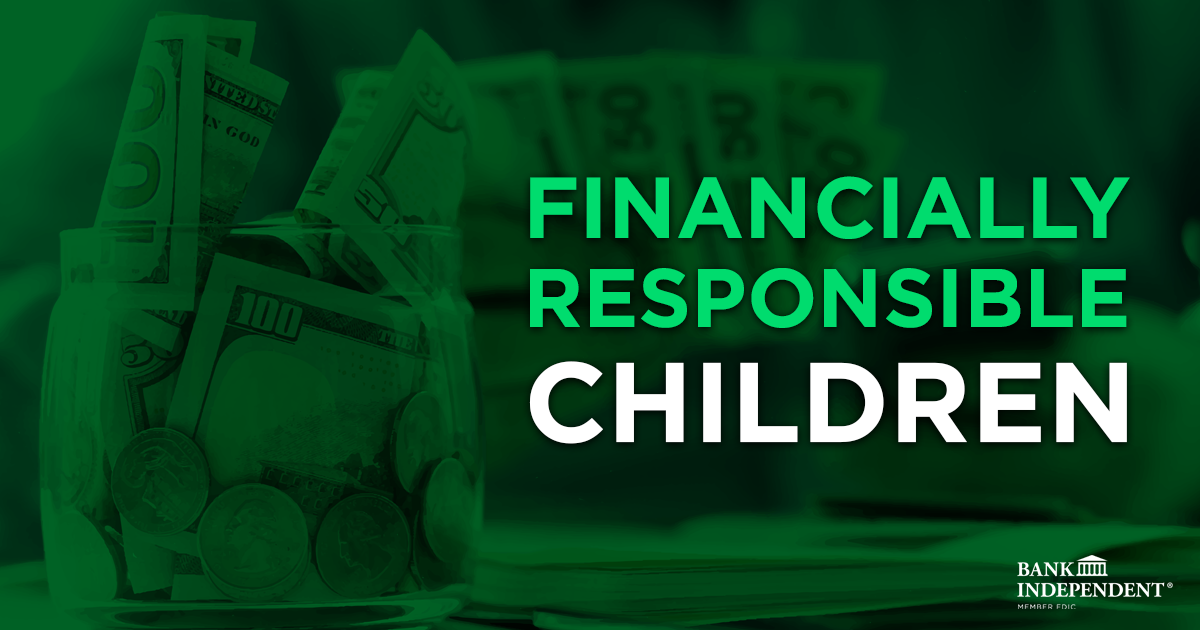
It's never too early to start teaching your children about money and how to be financially responsible. In fact, the sooner you start, the better.
Money is a big part of our lives, and it's important for our children to understand it from a young age. Teaching them about budgeting, saving, and investing will help them make sound financial decisions as adults.
Here are some tips for how to raise financially responsible children.
Why It's Important to Raise Financially Responsible Children
You want your children to be successful in life, right? Well, one of the most important things you can do for them is to help them become financially responsible.
It's never too early to start teaching your children about money. In fact, the sooner you start, the better. You can start by teaching them the value of a dollar and how to save for what they want. You can also show them how to budget and how to use credit responsibly.
The key is to make it a family affair. Get your kids involved in your financial planning and let them see how you manage your money. The more they learn at an early age, the better off they'll be when they reach adulthood.
How to Talk to Your Children About Money
It's never too early to start talking to your children about money. In fact, the sooner you start the better.
You need to be clear and honest with them about what you can afford and what you can't. And it's important to be open about your own financial situation, too. This way, they'll learn how to handle money responsibly.
It's also a good idea to give them an allowance, so they can start practicing how to budget and save up for the things they want. You can also help them by setting up a savings account for them and matching their contributions.
The most important thing is to make sure your children know that you're there for them, no matter what. They should feel comfortable coming to you with any financial questions they have.
The Best Way to Teach Your Children About Budgeting and Saving
You want to teach your children about budgeting and saving, but you're not sure how to go about it. Here are a few tips:
Start early. The earlier you start, the better. You want your children to get into the habit of saving from a young age.
Make it fun. Turn budgeting and saving into a game. Challenge your children to save up for something they really want.
Set a good example. Children learn by watching their parents. If you're not good with money, your children are going to pick up on that and learn from your mistakes.
Be consistent. It's important to be consistent with your teachings. If you preach one thing one day and do something else the next, your children will be confused and won't know what to believe.
How to Help Your Children Make Responsible Decisions About Spending
So, how do you help your children make responsible decisions about spending? Here are four tips:
- Let them know how much money you make and what bills need to be paid each month. This will give them a sense of what's available to spend.
- Help them create a budget and stick to it. This will teach them the value of money and how to be disciplined when it comes to spending.
- Show them how to save for the future by opening a savings account and setting aside money each month.
- Encourage them to get a part-time job so they can learn the value of working for what they want.
The Importance of Setting a Good Example for Your Children
You may be wondering how you can set a good example for your children when it comes to money. Well, it's actually pretty simple.
The most important thing you can do is be honest with them about your finances. Let them know what you're earning, what you're spending, and how you're saving. Explain to them why it's important to be responsible with money, and talk to them about the value of a dollar.
You also want to make sure that you're not constantly stressing out about money. Children can pick up on this, and it'll only make them more anxious about money themselves. Show them that you're in control of your finances, and that you're not going to let money stress you out.
Lastly, let your children see you save money. Open a savings account for them and show them how to save their money. Teach them the importance of being responsible with their finances, and they'll learn from your example
FAQs About Raising Financially Responsible Children
As a parent, one of your most important jobs is to teach your children how to manage money responsibly. But that can be a daunting task, especially if you don't know where to start.
So we've put together a list of common questions about raising financially responsible children. We hope this will help you get started on the right foot.
-
How do I teach my child about money?
The best way to teach your child about money is by setting an example. Show them that you're responsible with your own finances, and talk to them about the importance of saving and budgeting.
-
What's the best way to teach my child about credit cards?
The best way to teach your child about credit cards is by setting a good example yourself. Explain how credit cards work, and make sure your child knows that they should never borrow more money than they can afford to pay back.
-
How can I help my child develop a sound financial plan?
Help your child develop a budget, and encourage them to save for short-term and long-term goals. It's also important to teach them the importance of patience and investing in order to achieve financial success.
Raising children to be financially responsible is one of the most important things you can do as a parent. Teaching them the value of money and how to manage it will help them throughout their lives.
There are a few things you can do to help your children learn about money and develop good financial habits:
- Start early. Teaching your children about money when they're young will help them learn and remember the lessons better.
- Explain the concepts in a way they can understand. Use simple terms and examples they can relate to.
- Let them make mistakes. Kids will make mistakes with money, and that's okay. Just make sure they learn from them.
- Help them set goals. Encourage your children to save for specific goals, such as a new toy, a trip to Disney World, or college tuition.
- Give them opportunities to work. Let your children earn money by doing chores or by working outside the home.
- Be a good role model. Children learn by watching their parents. Demonstrate responsible financial behavior yourself and talk about money matters openly and honestly with your kids.
Follow these tips and you'll be on your way to raising financially responsible children!

